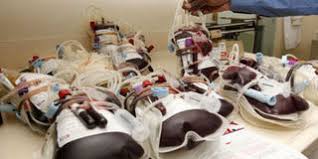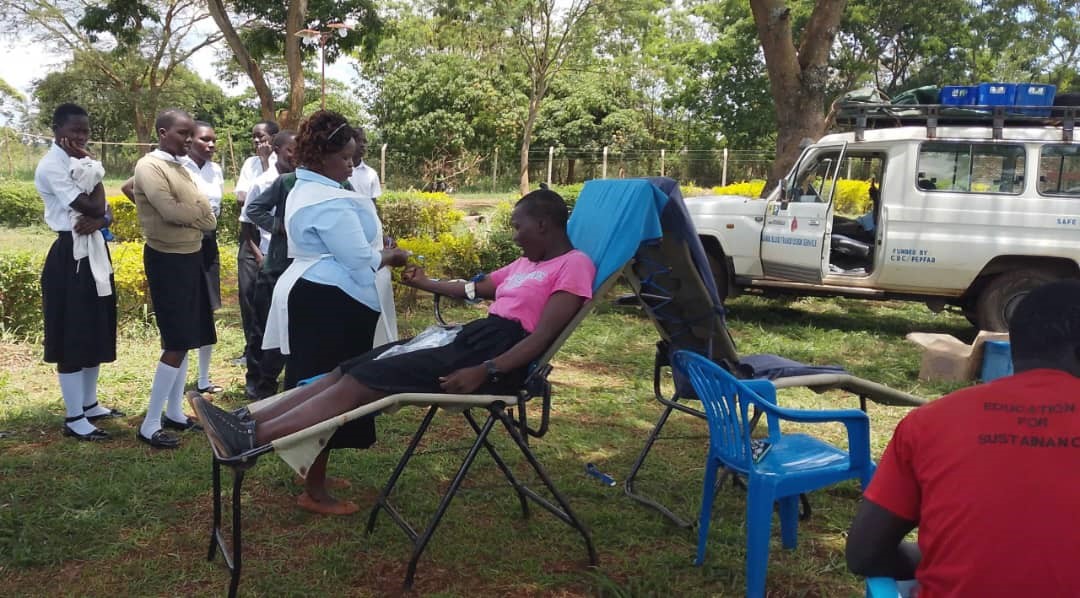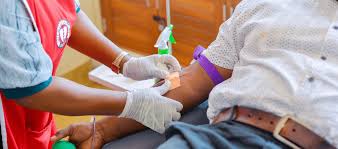
 Radio Apac
Radio Apac

 Radio Apac
Radio Apac
15 August 2025, 5:01 am

By Sarah Acio Acak
In Apac District, a wave of mistrust is threatening the lifeline of Uganda’s health system — voluntary blood donation. What began as whispers in the community has now escalated into open defiance, with some residents refusing to donate, alleging that blood is later sold to patients at exorbitant rates.
For more than a decade, Ms Paska Akullu, a resident of Apac Municipality, had faithfully donated blood — often without hesitation. But her commitment ended abruptly. “I have been donating blood for over ten years. But when a patient needs blood, especially in government hospitals, they are told there is none. They are then referred to private clinics where blood is sold for about 55,000 shillings per unit,” she told Radio Apac in an exclusive interview.
Her claims are echoed by Ms Angela Okello, another long-term donor whose child suffers from sickle cell disease. Despite her regular contributions to blood banks, Okello says she often has to pay for her child’s transfusions — sometimes as much as 150,000 shillings for three units. “It’s heartbreaking,” she said, calling for a thorough investigation into how donated blood is handled at Apac General Hospital.
The allegations point to a deeper issue: if blood donation in Uganda is free, how are patients ending up with hefty bills for transfusions?
Under Uganda’s health guidelines, all donated blood is collected and distributed through regional blood banks, free of charge. In northern Uganda, the Gulu Regional Blood Bank serves as the central distribution hub. According to its Senior Laboratory Technician, Mr Polycarp Ojok, the sale of blood is illegal and strictly prohibited.
“Only three private facilities in Apac are authorised to receive blood from us — Apac General Hospital, Nightingale Hospital, and Apac Nursing Home. Blood is not for sale. If we find any facility charging for blood, action will be taken,” Mr Ojok emphasised.
However, on the ground, patients and their families report a different reality. Multiple accounts suggest that while the blood itself may be free, patients are often asked to pay for “associated costs” — a grey area where transparency appears to be lacking.

Dr Alex Oula, proprietor of Apac Nursing Home — one of the facilities named in the allegations — denied that blood was being sold. “Blood is free. What we charge for are the logistics — testing, refrigeration, transport — not the blood itself,” he explained.
Yet for many in Apac, this distinction offers little comfort. In practice, the so-called “logistics fees” can be prohibitively high, particularly for low-income families facing medical emergencies.
The Ministry of Health has yet to issue an official statement despite growing public outcry. Meanwhile, the Gulu Regional Blood Bank says an investigation has been launched, although no timeline has been provided for its conclusion.
If the allegations are proven true, it could mean that donated blood — intended to save lives — has become entangled in profit-making practices, eroding public trust. For communities like Apac, where blood shortages can already mean the difference between life and death, the consequences could be severe.
As the probe continues, questions remain unanswered: How closely are authorised facilities monitored? Are “logistics fees” being used as a loophole to mask the sale of blood? And perhaps most importantly, how many patients have already suffered because they could not afford the fees?
Until these questions are addressed, residents like Paska Akullu are standing firm in their boycott — a silent protest against what they see as a betrayal of one of the most fundamental principles of healthcare: that the gift of life should not carry a price tag.
“The production of this story was made possible through financial support from the Finnish Foundation for Media and Development (VIKES), in partnership with the Uganda Media Women’s Association (UMWA).”